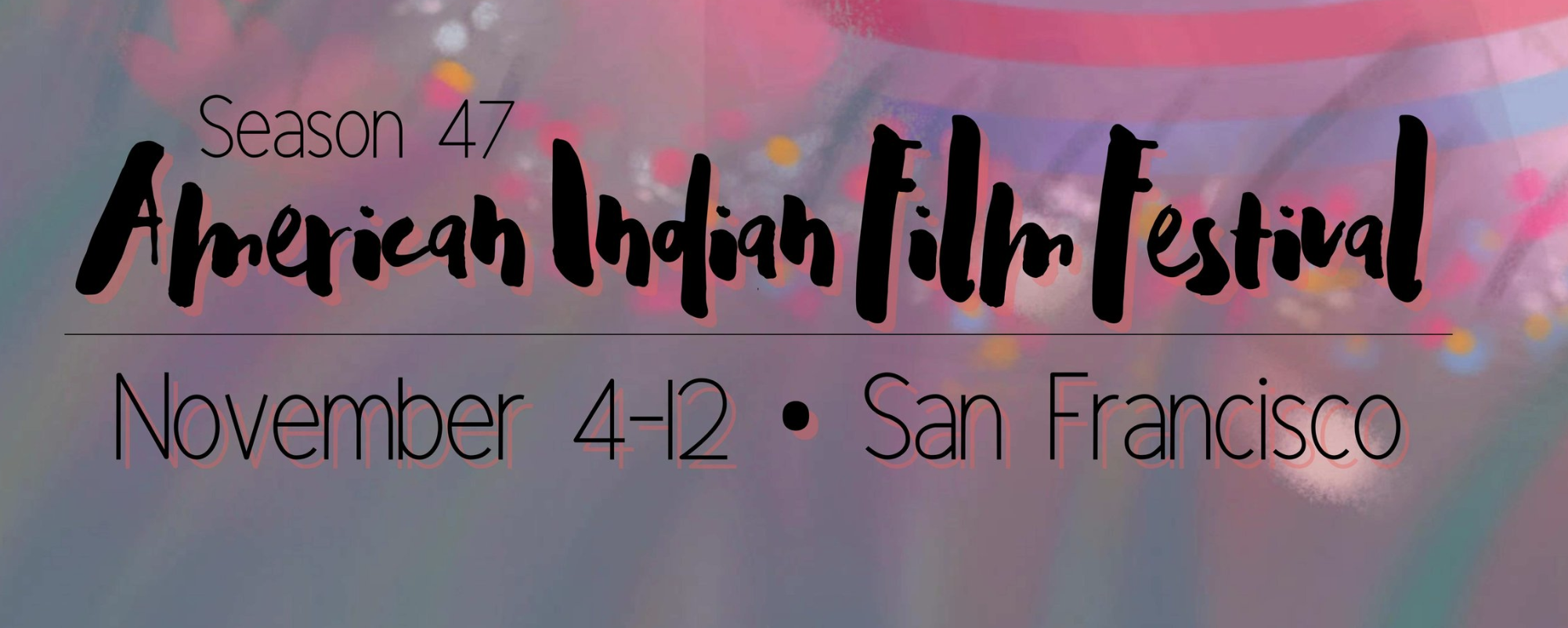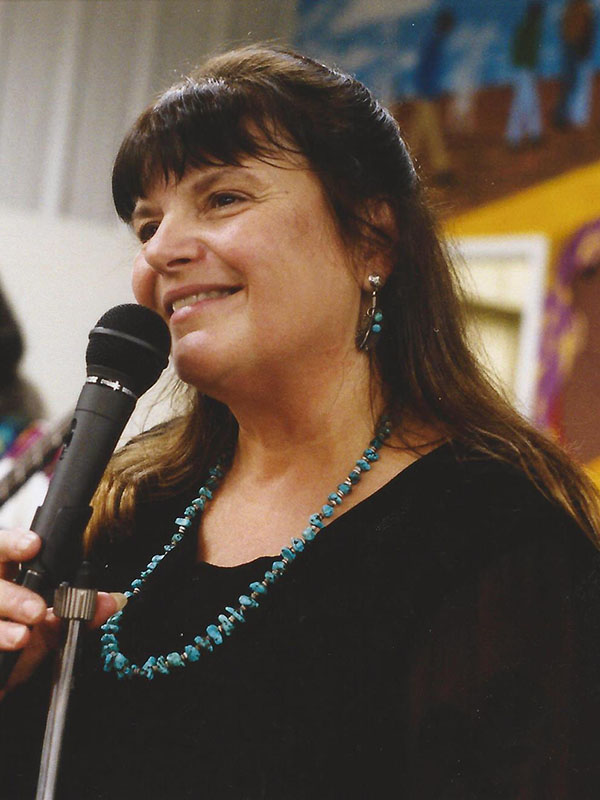
- Details
- By Nanette Deetz
This film festival began in 1975 in Seattle before moving to the Bay Area in 1977. After the passing of director and AIFF founder Michael Smith (Fort Peck Sioux), his daughter Mytia Zavala (Fort Peck Sioux/Laguna Pueblo/Navajo/Grand Ronde) continues the festival's vision and mission in her father's honor.
"It was important for me to come back strong after two years of virtual programs," Zavala said. "We have a lot of content this year, and I wanted to make it as easy as possible for audiences to view these films. I wanted to do as much as I could for our Native American community and our film community to educate, inspire, and bring awareness about what is important now across Indian country."
This year, AIFF offers more than 70 films and 17 programs — 13 of which are free for the community.
"We have worked with the San Francisco Public Library to make sure films can be seen by our Native community without cost," Zavala said.
Films will be shown at venues across San Francisco at the Letterman Digital Arts Center, The Southside Theater in Fort Mason, the SOMA Arts Cultural Center, and the Koret Auditorium at the San Francisco Public Library.
This year's film festival includes full-length feature films, documentary features, documentary shorts, live shorts, animated shorts, and music videos. Special events during the festival include a panel on creating films to create social change; and a fundraiser featuring noted chef Crystal Wahpepah, owner of Oakland, California's Wahpepah's Kitchen.
This year's festival poster is titled "Red Dreaming on the Red Road" by digital artist Chelsea Smith of the Bois Forte Band of Chippewa.
"This is also the first year in our festival's history that we have chosen a woman as our official artist for the poster, program cover, t-shirts and other memorabilia," Zavala said. "We are very excited to share her art with our American Indian Film Festival this year."
Opening night (Nov.4) is presented by Lucas Films in the Letterman Digital Arts Center in SF's Presidio. The evening features a short film, "Unlord the Land," directed by Yvan Itrureaga and written by noted local author Tommy Orange (There There) and is about a native artist who makes a deal with his brother to flip an apartment building in rapidly gentrifying Oakland. "Long Line of Ladies" is a documentary short about a young Karuk girl preparing for her Ihuk coming-of-age ceremony. "Indian Land" is a retrospective of the 19-month occupation of Alcatraz Island by Indians of All Nations.
A program highlight is "Mother Earth," featuring a collection of films focusing on mother earth from traditional Native knowledge. One film from this series is "Native to Right Here: the plants, animals, and People of Tuushtak," and follows Berkeley, California's Cafe Ohlone founders Vincent Medina and Luis Trevino as they discuss Ohlone history, culture, and cuisine.
Tickets for the festival can be purchased here.
More Stories Like This
A Native American Heritage Month Playlist You Can Listen to All Year Long11 Native Actors You Should Know
Five Native American Films You Should Watch This Thanksgiving Weekend
Heavy metal is healing teens on the Blackfeet Nation
Over 150 Tribal Museums Participate in Fourth Annual Celebration of Native Life
Help us tell the stories that could save Native languages and food traditions
At a critical moment for Indian Country, Native News Online is embarking on our most ambitious reporting project yet: "Cultivating Culture," a three-year investigation into two forces shaping Native community survival—food sovereignty and language revitalization.
The devastating impact of COVID-19 accelerated the loss of Native elders and with them, irreplaceable cultural knowledge. Yet across tribal communities, innovative leaders are fighting back, reclaiming traditional food systems and breathing new life into Native languages. These aren't just cultural preservation efforts—they're powerful pathways to community health, healing, and resilience.
Our dedicated reporting team will spend three years documenting these stories through on-the-ground reporting in 18 tribal communities, producing over 200 in-depth stories, 18 podcast episodes, and multimedia content that amplifies Indigenous voices. We'll show policymakers, funders, and allies how cultural restoration directly impacts physical and mental wellness while celebrating successful models of sovereignty and self-determination.
This isn't corporate media parachuting into Indian Country for a quick story. This is sustained, relationship-based journalism by Native reporters who understand these communities. It's "Warrior Journalism"—fearless reporting that serves the 5.5 million readers who depend on us for news that mainstream media often ignores.
We need your help right now. While we've secured partial funding, we're still $450,000 short of our three-year budget. Our immediate goal is $25,000 this month to keep this critical work moving forward—funding reporter salaries, travel to remote communities, photography, and the deep reporting these stories deserve.
Every dollar directly supports Indigenous journalists telling Indigenous stories. Whether it's $5 or $50, your contribution ensures these vital narratives of resilience, innovation, and hope don't disappear into silence.
 The stakes couldn't be higher. Native languages are being lost at an alarming rate. Food insecurity plagues many tribal communities. But solutions are emerging, and these stories need to be told.
The stakes couldn't be higher. Native languages are being lost at an alarming rate. Food insecurity plagues many tribal communities. But solutions are emerging, and these stories need to be told.
Support independent Native journalism. Fund the stories that matter.
Levi Rickert (Potawatomi), Editor & Publisher

